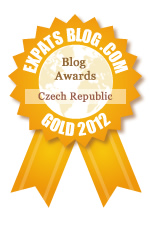
Central Asia stretches from the Caspian Sea to
China and from
Russia to Afghanistan. This area has been a crossroads for many, mostly nomadic, civilizations. It is most noted for the Silk Route which connected the
Middle East with Europe,
India and China.
It is also home of "the Stans".
-Stan means "land of". When most people speak of the Stans, they refer to Kazakhstan, Kyrgyzstan, Tajikistan, Turkmenistan, and Uzbekistan. All five countries are
former Soviet republics that gained independence when the USSR broke up. Sometimes people try to include Afghanistan and Pakistan in the club but they are South Asian countries; not Central Asian.
 Kazakhstan
Kazakhstan is the world's largest landlocked country. It was the last Soviet republic to declare independence. Kazakhstan is home to 17 million people (not including the fictional character
Borat). A little over 70% of the population is Muslim. The country is rich in fossil fuel reserves, uranium, copper, and zinc.
 Kyrgyzstan
Kyrgyzstan is home to 5.7 million people and 75% are Muslim. It is a poor, mountainous country that relies mostly on agriculture. Until a few years ago, it was the only country in the world to host both American and Russian military bases at the same time.
 Tajikistan
Tajikistan is the smallest of the stans but is home to 8 million people. Over 90% are Muslim. It was the poorest Soviet republic and today it is the poorest country in Central Asia. Over 1 million Tajiks work abroad, 90% in Russia, and send money back home. This makes up almost half of the country's GDP.
 Turkmenistan
Turkmenistan is mostly desert. It has a population of 5.2 million people of which 89% are Muslim. Turkmenistan is sitting on the world's 4th largest natural gas reserves. It isn't exactly an open society. It is considered to be one of the 10 most censored countries in the world and its freedom of the press ranks just above North Korea and Eritrea.
 Uzbekistan
Uzbekistan has 30 million people and roughly 88% are Muslim. Nearly half of the entire population of Central Asia lives in Uzbekistan. There is lots of history here as it is home to many cities that were main stops on the Silk Road. Even though about 10% of the labor force works abroad, mainly in Russia and Kazakhstan, the country is considered one of the world's fastest growing economies.
Aside from Kazakh, Kyrgyz, Tajik, Turkmen, and Uzbek, the most commonly spoken language is Russian. It is a co-official language in a few of the countries.
During communism, atheism was encouraged. Since independence there has been a huge increase in the practice of Islam. Several countries are working to balance secular societies with an increase of religion while preventing radical Islam from taking root.
Visiting the Stans isn't exactly easy because all of them, except for Kyrgyzstan, require most people to obtain tourist
visas. Some are expensive, some are less so, but they all require a hell of a lot of paperwork. For Americans, a Kazakh or Uzbek visa costs $160. A Tajik visa is only $25 but you need an invitation letter before you can even apply. The only way to get a tourist visa for Turkmenistan is to purchase an entire tour in advance. Again, for the most part, Kyrgyzstan doesn't even require a visa so it's the easiest of the Stans to visit.
However, Kazakhstan is currently running a one-year test until 15 July 2015. During this pilot program, citizens of the United States, the
Netherlands, the
UK,
France,
Germany,
Italy,
Malaysia, Japan, and the
UAE are allowed to visit without a visa for up to 15 days.

I've been wanting to visit Uzbekistan since I was a teenager. Ever since I read a magazine article about the Soviet Union and it talked about how the capital city
Tashkent was home to camels and pineapples. However, thanks to "no visas required",
my first trip to the Stans will be to Kyrgyzstan and Kazakhstan this June.
Update: Here's a video I found out on YouTube about how powerful the Stans are.
 Animals do not sound the same in different languages. Every language has its own way of describing the sounds that different animals make. For example, in English, dogs go "woof" (or "bow wow"). In Czech they go "haf haf". English speaking cats go "meow" while Czech cats go "mňau".
Animals do not sound the same in different languages. Every language has its own way of describing the sounds that different animals make. For example, in English, dogs go "woof" (or "bow wow"). In Czech they go "haf haf". English speaking cats go "meow" while Czech cats go "mňau".














_crop.jpg)































